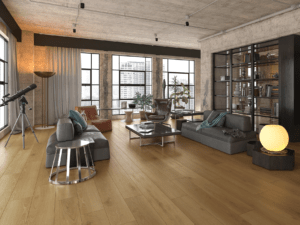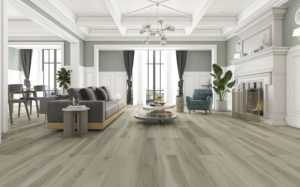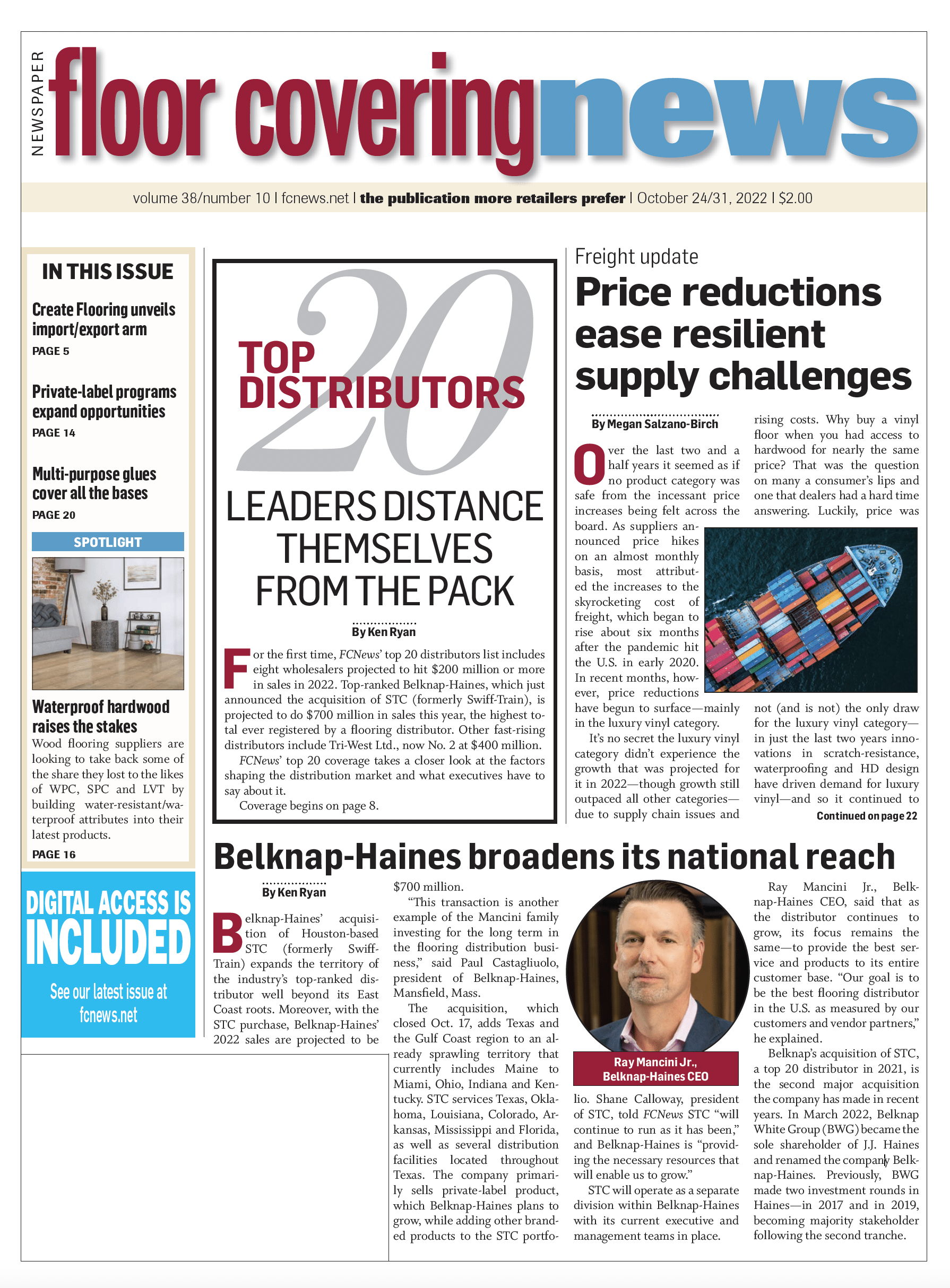
Some say Millennials rang in the true era of private label with their nuanced desire to shirk the brand names of yesteryear and don little to less-known brands as long as the price, quality and social responsibility was right. Whatever the reason, private-label brands across industries are experiencing vast growth of late—Costco’s Kirkland brand, for example, experienced a staggering $6 billion in revenue in 2022.
In flooring, it’s no different. But the shift is not without reason. Today, private-label programs offer a variety of benefits to distributors and retailers alike—as well as the manufacturers who supply the product.
Tri-West, for example—No. 2 on FCNews’ annual Top 20 Distributors list this year with projected sales of $400 million in 2022—utilizes private-label product across categories—mostly through its own proprietary brands. “Private label allows us to pick specific colors, specifications and technologies and we can really tailor the product toward our geography versus branded products that don’t necessarily fit what we need,” David White, vice president of sales and marketing, Tri-West, Ltd., told FCNews.
Through the distributor’s Paradigm brand, Tri-West is able to supply its retail partners with top products regularly. “It allows us to work on the most technologically revolutionary products in the marketplace,” White noted. “We talk to factories weekly—if not a couple of times a week—trying to come up with the next best thing. We’re aggressively looking for that, and if we find it we just plug it into one of our private-label brands—rather than waiting for one of the national brands to try to come up with something.”
Galleher—No. 3 on FCNews’ annual Top 20 Distributors list this year with projected sales of $330 million in 2022—has three primary private-label brands that are each designed to meet the needs of different customer segments: Monarch Plank, Reward Flooring and GemCore. “Each brand meets a unique need across the spectrum of residential and commercial customer segments, which allows us to focus our marketing messaging on those key relevant benefits that generate purchase interest,” Jim Harrington, vice president, marketing and brand strategy, told FCNews.
Harrington added that the distributor works hard to identify the purchase motivators for consumers shopping for flooring products at independent retailers to best support the needs of its partners. “Whether it’s a particular color, texture, finishing technique or price point, our proprietary brands are designed to deliver benefits that fulfill unmet consumer flooring needs. As a result, our retail partners can feel confident that offering one of our proprietary brands should increase purchase interest and ultimately lead to a sale (and a satisfied customer).”
Benefits galore

But hot new product tailored to a retailer’s individual market is not the only benefit that abounds with private label. Retailers also receive pricing benefits, distributors note. “What I found in traveling around is some of the big suppliers out there have different pricing structures,” Tri-West’s White said. “The real large retailers basically get a killer deal on those prices and then the rest of the dealers pay a higher price. At the end of the day, they’re taking very little margin on the big guys, much more margin on the medium-sized retailers and then the small retailers pay even more. So, the benefit of private label is that everyone is on the same playing field. They have a better shot at getting the job and getting a profitable sale with private-label lines.”
Private labeling also makes it harder for retailers to be shopped by consumers (or their competition). “Retailers [seldom] confront a customer with a smart phone beating them up on price based upon some website that may or may not actually be able to secure a branded product, but nonetheless has influenced the conversation,” Scott Rozmus, president/CEO, FlorStar Sales—No. 15 on FCNews’ annual Top 20 Distributors list this year with projected sales of $148 million in 2022—told FCNews. “Yes, such instances can happen with private label, too, as some websites simply appropriate images and even names without permission, but there is less of this noise with private label, meaning the work the retailer has done to help a consumer more likely pays off in not only a sale but a sale more on the retailer’s terms.”
The private-label process has also evolved over the years. Distributors agreed the relationship forged with the suppliers of private-label product has grown, now representing a real partnership—which benefits all involved.
“These days, we have a lot of input as to what they bring to market; whereas before they would launch a collection and we had zero input as far as the design,” White said. “I think [suppliers] realized that one size does not fit all. With our manufacturers now, we handpick products that really work well in our geography in trends that are popular or trends that we think are upcoming.”
Galleher’s Harrington agreed. “Rather than a typical manufacturer/distributor relationship, we forge a genuine partnership with our manufacturing partners. And because of this close partnership with our manufacturers, we’re able to focus on delivering the highest-quality products at a competitive price point for each segment. Our internal product development team works very closely with our manufacturing partners and the interior design community to ensure the products within our brands reflect the latest trends to provide our customers multiple options.”
FlorStar Sales’ Rozmus added that private-label brands also benefit suppliers that might not otherwise be able to effectively sell their own products. “Some suppliers do not have the means or interest in marketing their items,” he explained. “They just want to manufacture good products and leave the marketing and sales to someone else. Private labels also might allow a branded supplier to diversify its offering or its channel without disrupting existing models. Private labels can also help segment certain offerings to avoid channel confusion.”

